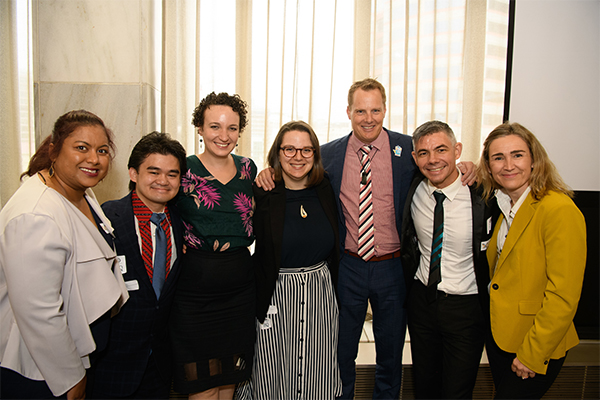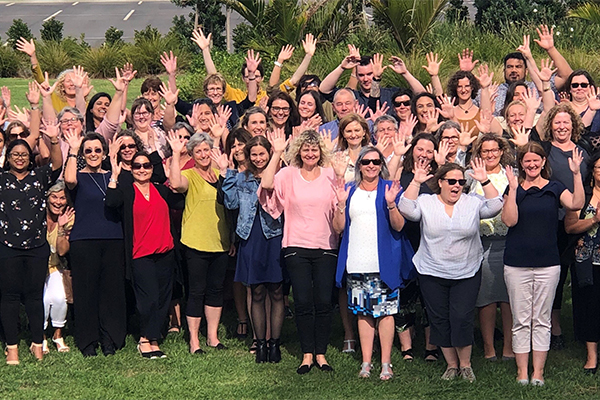Small-Medium Organisation Winner

Deaf Aotearoa is a not-for-profit organisation providing advocacy and services for Deaf people and the Deaf community across New Zealand. It has 14 offices located from Invercargill to Whangarei and currently employs 31 Deaf staff across a wide age range.
One of Deaf Aotearoa’s goals is to help Deaf people in New Zealand achieve their potential in the workplace and be represented at all levels, including in leadership.
When the organisation recruited for a new Chief Executive in 2012, more than 50 people applied for the role, but only a small number of the applicants were Deaf. It was clear not enough had been done to develop Deaf leaders within Deaf Aotearoa, or within the country generally.
It spurred the newly appointed Chief Executive to commit to establishing roles for Deaf leaders within the organisation to ensure as many Deaf people as possible were being groomed to be the next Chief Executive.
Deaf Aotearoa Chief Executive Lachlan Keating says that Deaf people want work that matches their skills, experience and qualifications. But they are constrained by barriers such as English being a second or third language, lack of awareness and fear-based social stigmas.
“We see individuals every day battling the same systemic problems: poor education, ignorance, under-employment and unemployment.”
Deaf Aotearoa has fought for 45 years to combat these discriminatory challenges and provide more opportunities for this under-represented group to succeed in their careers.
Within its own organisation it ensures Deaf people achieve their potential by providing opportunities at every stage of the employment pathway.
This includes attracting Deaf people to work at all levels of Deaf Aotearoa, designing roles that are best suited to be performed by Deaf individuals, supporting Deaf staff to study or take on professional development opportunities and identifying Deaf staff members with leadership potential and promoting them at the earliest opportunity.
Deaf staff are ‘at the table’ when decisions are made, providing advice and feedback and Deaf staff are encouraged to take on senior leadership roles outside of Deaf Aotearoa.
It has required change throughout the employee life cycle. The organisation’s recruitment process has been redesigned to give Deaf applicants the best possible experience. This includes having Deaf people on all interview panels and involved in recruiting decisions.
Any Deaf person who applies for a role is given the opportunity to interview, and sufficient time is allowed to interpret from New Zealand Sign Language (NZSL) into English and from English into NZSL.
“When given the chance to communicate in NZSL, Deaf individuals are far more likely to succeed and demonstrate their wealth of skills,” Lachlan says.

Deaf Aotearoa also focuses on creating roles and internal processes more suited to skills that Deaf people have, such as NZSL, cultural sensitivity, empathy, and social connection.
“We’ve carved out leadership roles that exemplify these qualities, including: NZSL Week Coordinator, First Signs Facilitators, Youth Internships, Māori Deaf Development Officer, and Māori Advisory Group members.”
The organisation strives to educate both Deaf staff and hearing staff to make their workplace as Deaf-friendly as possible.
“Most of our employees have knowledge of NZSL, and our leadership team has both hearing and Deaf representatives. This ensures a Deaf perspective is included with every facet of our operations, advocacy, outreach, hiring process, and development decisions.”
The success of these initiatives is reflected in the numbers – in 2005, 33 per cent of the organisation’s staff were Deaf. This increased to 54 per cent in 2021.
Deaf representation on the Leadership Team has doubled and there have been several internal promotions.
“These roles are not tokenistic – the people who hold them are high-performing individuals with high expectations of themselves and others. They challenge us all to continually develop our systems and processes to deliver better outcomes for our staff and community.”


